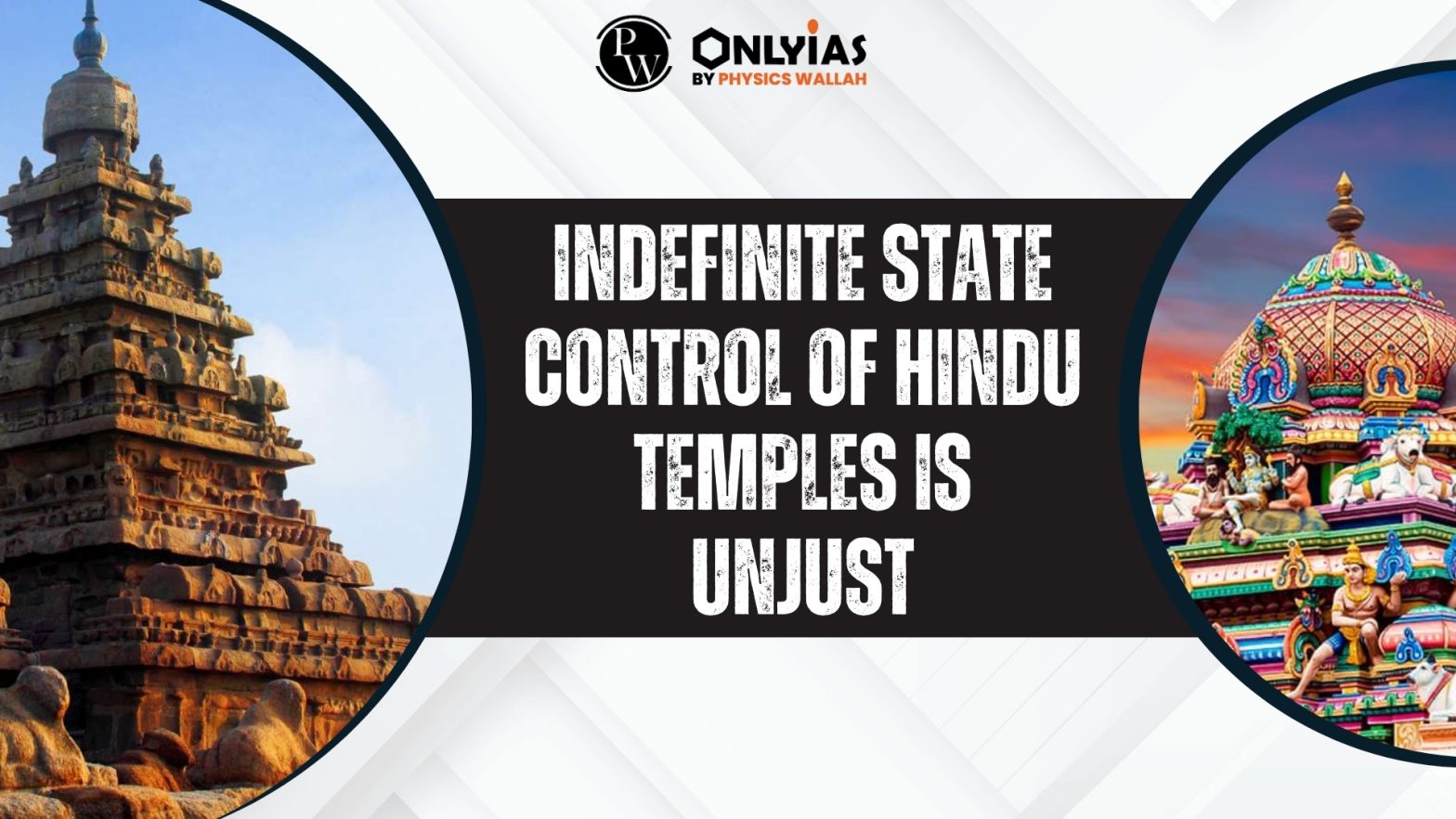Context:
- This article is based on an Editorial “Indefinite state control of temples is unjust” which was published in the Hindustan Times. The Indian Prime Minister’s recent remarks about the government’s capture and control of temples in South India, especially Tamil Nadu (TN) drew national attention and raised a question, how did only Hindu places of worship come under such state superintendence?
| Relevancy for Prelims: Temples, Fundamental Rights, Religious Rights, Articles 25 and 26 of Constitution of India, Hindu Religious and Charitable Endowments 1951 Act, and Wakf Act.
Relevancy for Mains: Delinking of State from Religious Affairs, and associated arguments. |
What is the history of control of temples by the State?
- Temples have symbolized Bharat’s civilizational ethos and syncretic sanatan sanskriti. While some religious groups are demanding delinking of state from religious affairs.
- In 1927, the Justice Party implemented the Madras Hindu Religious Endowments Act, 1927.
- Subsequently, in 1950, the Law Commission of India recommended the enactment of a law aimed at preventing the misappropriation of funds and properties belonging to temples.
- The Tamil Nadu Hindu Religious and Charitable Endowments (TNHR&CE) Act was passed into law; however, its constitutionality faced a challenge before the Supreme Court.
- In the landmark Shirur Mutt case of 1954, the SC affirmed the validity of the law as a whole but identified certain provisions that required revision. This resulted in the introduction of the amended TNHR&CE Act in 1959, which allows the state to intervene in the affairs of Hindu public endowments.

What are the reasons for the increase of such a demand?
- Gross mismanagement of financial resources
- Increasing Corruption
- Disregard to temple maintenance leading to loss and destruction of temple antiquities
What are the arguments against delinking of State from religious affairs?
- No credible successor
- Strengthening Evil practices
- Indian Concept of Secularism
- Constitutional Provisions
- Judicial Backing
- Laws for other Religions
Article 25 of Constitution of India
- Subject to public order, morality and health and to the other provisions of this Part, all persons are equally entitled to freedom of conscience and the right freely to profess, practice and propagate their religion.
Article 26 of Constitution of India
- It states that every religious denomination has the right to form and maintain institutions for religious and charitable purposes but subject to morality, health, and public order.
|
What are the arguments in favour of delinking of State from religious affairs?
- Against the Secular and Democratic credentials of India
- Undermines their freedom of religion which is guaranteed by the constitution under Articles 25 and 26.
- Unequal degree of control amongst religions.
- Comparison with the Wakf Act is Faulty.
- In the Shirur Mutt case, the supreme court struck down a major portion of the Hindu Religious and Charitable Endowments 1951 Act.
Also read: Can Generative Artificial Intelligence Create a New Religion that could be universally accepted?
Conclusion:
The colonial law, the Religious Endowments Act (Act XX of 1863) has created committees in every district to exercise control over temples. This act should be made applicable to all religious institutions to guarantee adequate community representation in the management of their places of worship.
| Prelims Question:
Consider the following statements: (2020)
1. The Constitution of India defines its structure in terms of federalism, secularism, fundamental rights and democracy.
2. The Constitution of India provides for ‘Judicial review’ to safeguard the citizens’ liberties and to preserve the ideals on which the Constitution is based.
Which of the statements given above is are correct?
(a) 1 only
(b) 2 only
(c) Both 1 and 2
(d) Neither 1 nor 2
Ans: (d) |
![]() 16 Oct 2023
16 Oct 2023

